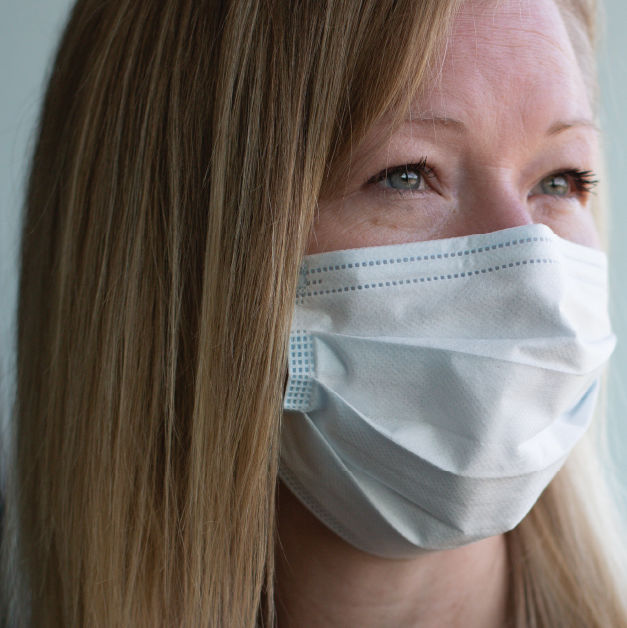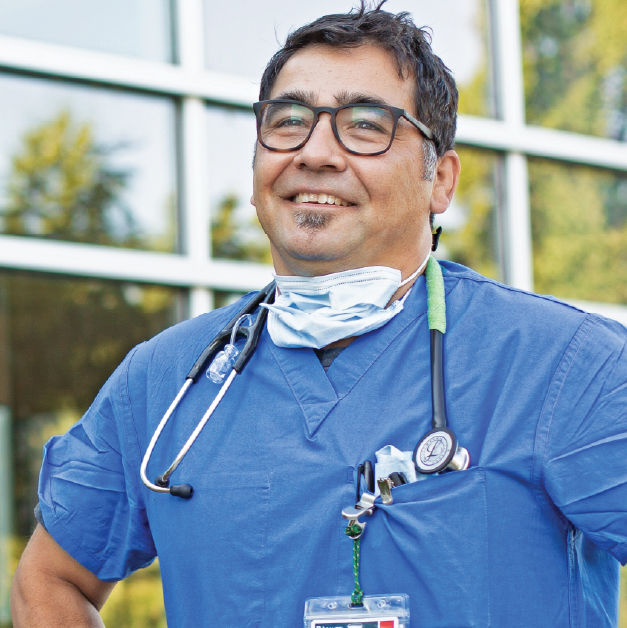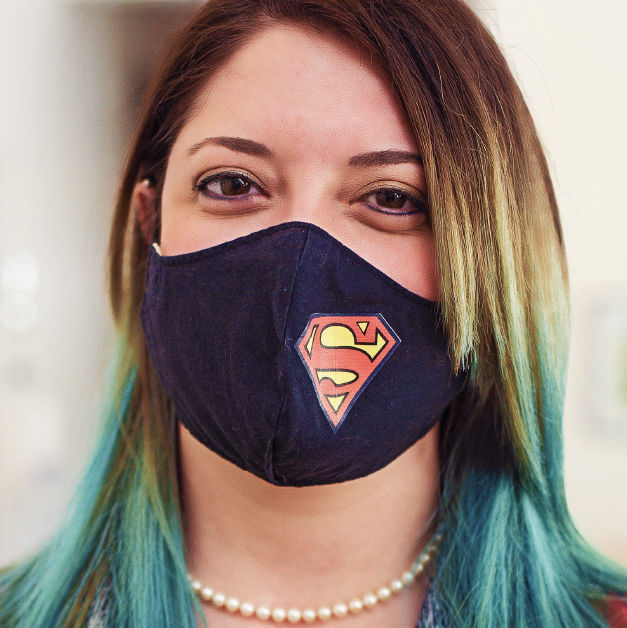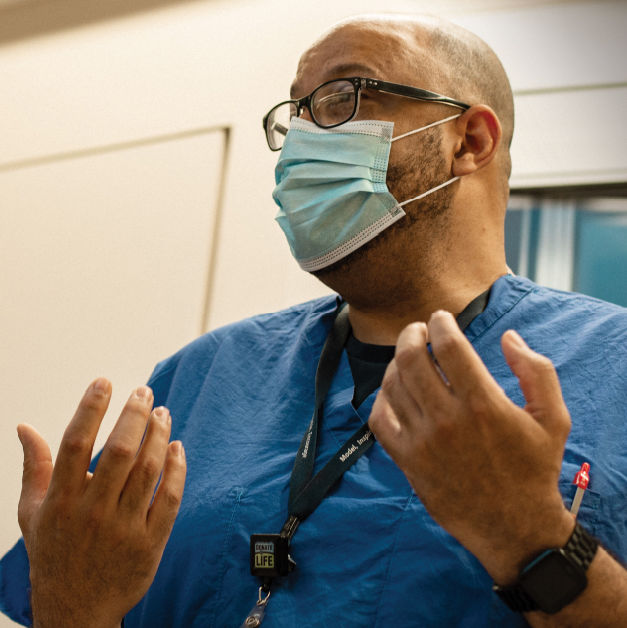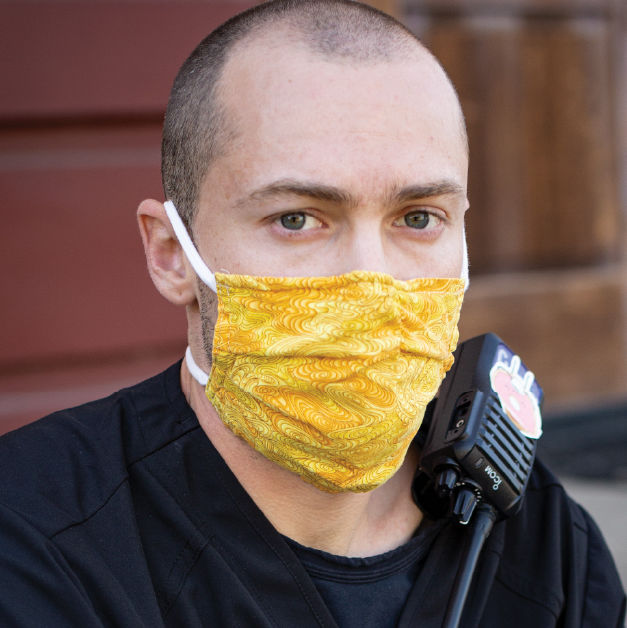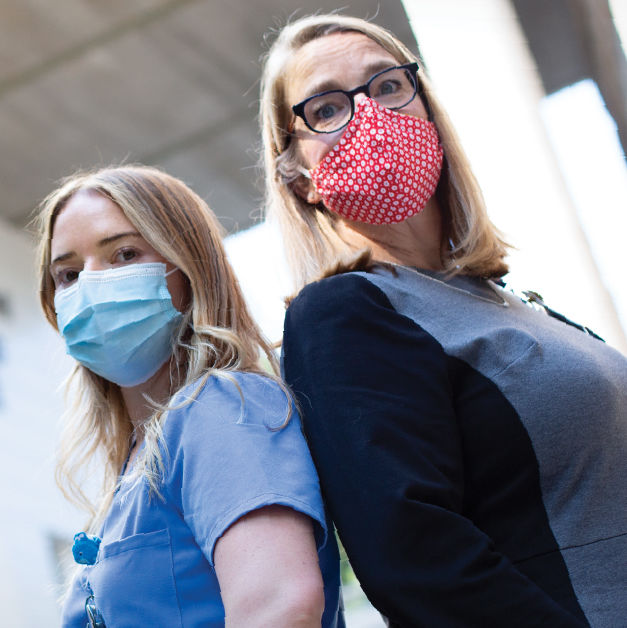Year of the Nurse: The Hometown Hero
As the battle against Covid-19 rages on, it’s vital to recognize the brave men and women who, every single day, risk their health to protect ours. That’s why Regence BlueCross BlueShield of Oregon is dedicating this special series of articles to eight local and regional nurses who, through their compassion and humanity, have made the difference for thousands of lives.
Not only does Spencer Hall care for critically injured patients at Legacy Emanuel Medical Center—he was also born there. A lifelong resident of Portland, Hall had an interest in health and the human body from a young age. And after working for 10 years in retail, he decided to return to school at age 30 and get his nursing degree, pursuing his desire to contribute more to society.
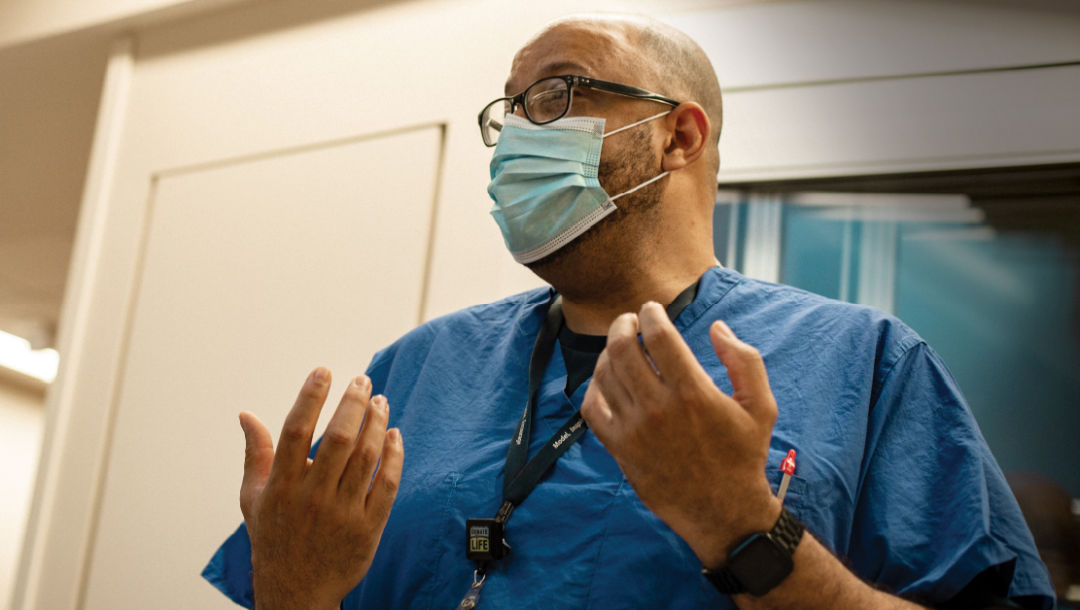
Spencer Hall at Legacy Emanuel Medical Center
Image: Ben McBee
He certainly achieved his goal: as one of only two Level I trauma centers in Oregon, Legacy Emanuel takes in a great deal of patients in severe condition, a position made extra complicated by the rise of Covid-19. “It has had a significant impact on how we manage flow through the hospital and how we as nurses must work while using precautions to prevent the spread of the virus,” Hall says. “It is very strange to treat trauma and other critically ill patients with Covid-19 or possible exposure to the virus, because you can't see the virus itself.”
Hall fills various roles in the Neuro-Trauma Intensive Care Unit, primarily as a night-shift change nurse, coordinating efforts to place patients in the location most suited to them while still caring for the patients that they already have. He’s also part of the team that connects emergency arrivals (via ambulance or helicopter) with the inpatient facility, providing life-saving resuscitation along the way.
Legacy Health has the highest volume of ECMO (extracorporeal membrane oxygenation) patients in the region, and its critical-care transport team is vital in mobilizing to retrieve, cannulate, and move patients to receive care by Hall. “ECMO is a treatment that uses a pump to circulate and oxygenate a patient who has compromised cardiac or respiratory function to the degree that conventional ventilation has failed,” Hall explains. “I have the honor of being one of the ECMO specialists who manages the pump to keep oxygenation and ventilation in range to support patients in collaboration with a nurse at the bedside, providing direct care while they heal. We use this measure with Covid-19 patients and are seeing real success in our outcomes.”
Through 12 years of ICU experience, Hall has learned to expect the unexpected. It’s a lot to juggle, especially with masks pulling on your ears for hours. He and his colleagues even wear Band-Aids on their noses to prevent chafing. They are resilience personified, but they are also human; the weight of witnessing patients say goodbye to their families on a tablet is crushing. When the first expected Covid-19 patient arrived, Hall and a coworker were talking about the fear and anxiety they were all facing. She told him simply, “I want that patient,” and Hall knows her courage is shared by others on the floor, too.
“We are in this together, and there is hope,” he says. “There is a real burden on nurses as health care workers regarding the social distancing from loved ones (myself included), because we really want to protect the vulnerable from Covid-19 as this pandemic unfolds. I miss my family terribly! But we must love each other, keep the faith, and learn.”
